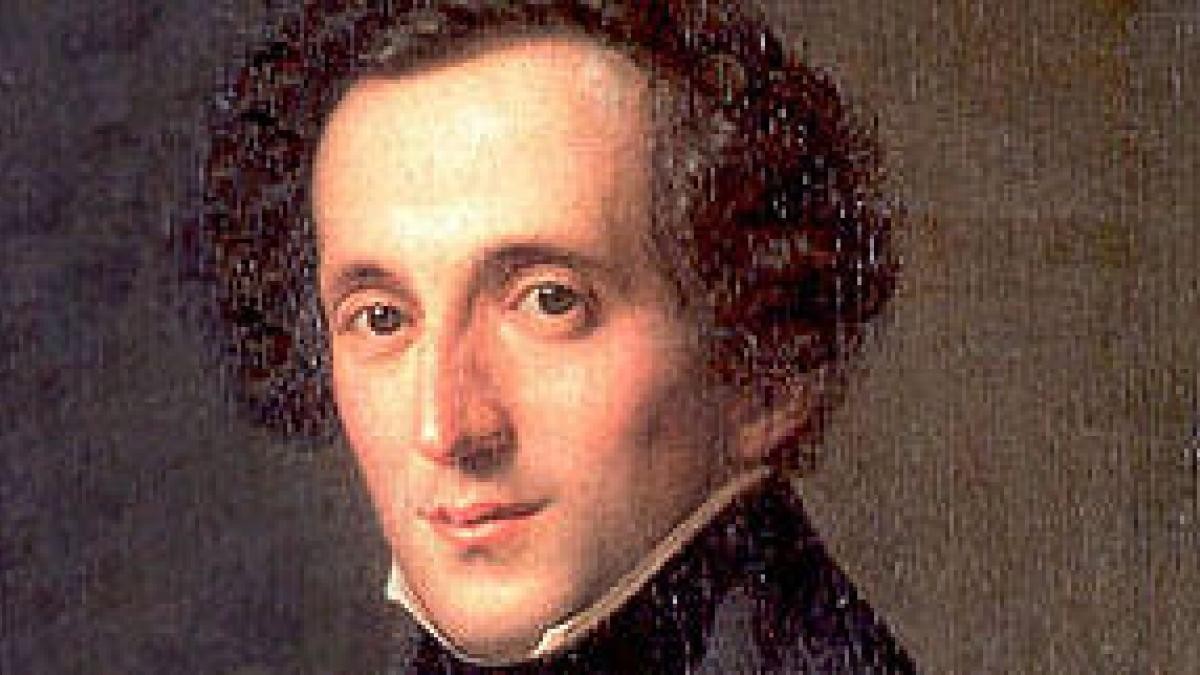
Iconic Composers: Felix Mendelssohn
Born in Hamburg, Germany in 1809, Felix Mendelssohn was a musical prodigy. At 9, he made his public debut; at 10, joined the Singakademie music academy; when he was 11, he wrote a violin sonata, two piano sonatas, multiple songs, a cantata, a brief opera & a male quartet. The power of his genius was fully revealed at the age of 16 when he wrote his Octet for Strings; and by the age of 17, Mendelssohn had produced one of his most acclaimed works, Overture to a Midsummer Night’s Dream. At age 18, he performed his only public opera, The Marriage of the Camacho.
At 20, Mendelssohn made his maiden visit to England; and also visited other places like Vienna, Florence, Milan, Rome and Naples, which resulted in the flowering of his musical genius, and inspiration for notable works, including the Hebrides Overture and the Scottish and Italian symphonies. Travelling extensively, Mendelssohn left a deep impact on British musical life.
Wedding March
When he was just 26, pianist, composer and conductor Mendelssohn was named conductor of the Leipzig Gewandhaus Orchestra. This was preceded by a prolific outpouring when he wrote the Reformation Symphony; published his first book of songs, Songs without Words and Italian Symphony.
His works during the subsequent years include the Variations sérieuses for piano, the Lobgesang( Hymn of Praise), Psalm CXIV, Piano Concerto No. 2 in D Minor, and chamber works, as well as the Violin Concerto in E Minor–Major and the oratorio Elijah.
Mendelssohn pitchforked Leipzig as the musical centre of Germany after he had founded the Leipzig Conservatory of Music and become its director. In fact, he was instrumental in making Leipzig one of the major European musical centres, one which exerted significant influence throughout Europe and even the United States up to the early years of the 20th Century.
Songs Without Words
One of the first significant Romantic composers of the 1800s, Mendelssohn died when he was just 38; his death immediately followed the passing away of his sister, Fanny Mendelssohn, six months earlier. She, who died suddenly, had been a lifelong inspiration for him. The shock of her passing, coupled with his strenuous career took a heavy toll on his health; and Mendelssohn died of a ruptured blood vessel in Leipzig, Germany. Interestingly, “Easter Sonata” — a complex four-movement piano composition from 19th century Germany which was attributed to have been written by Felix was found to have been written by Fanny–in 2010, after about 188 years.
Before Felix’s death, he had just completed composition of his String Quartet in F Minor after a brief visit to Switzerland. His premature death left behind incomplete works, a third oratorio, Christus, which arguably could have become his greatest, and an opera, Die Lorelei.
Violin Concerto in E Minor
In a way, Mendelssohn remains even today a figure to be rediscovered—through in the past two or three decades he has begun to attract renewed attention. Music aficionados are now recognizing Elijah as an innovative and powerful fusion of oratorio and Romantic opera. Undoubtedly, there are works that will always be considered masterpieces: the Octet, the Midsummer Night’s Dream music, The Hebrides, Calm Seas and Prosperous Voyage, Ruy Blas and other overtures, Elijah, the “Italian” and “Scottish” symphonies. It may be hard to find a professional violinist who is not aware of the E-minor concerto.
Mendelssohn’s stylish and elegant music has elements that unite this versatile 19th-century composer to the principal artistic figures of his time as it was inclined to do in Victorian times. Even in the 21st century his legacy still lingers on.
Business development manager at Dortmund
1yGreetings, I intend to give out my late wife's"Yamaha Baby Grand Piano" to someone who is passionate about Piano's and will love and take good care of it.
xDean,Amrita School of Business|JBIMS|DSE,DU|Law Faculty,DU|Ramjas,DU|xGlobal Head-M&C,Amrita TV|Co-founder, Grochange|Mentor, Mansions|xCEO, Popular Maruti Suzuki|xBoard Advisor,JES
2yGoethe is considered to be the greatest German literary figure of the modern era. Writing in 'The New Yorker' (15 Feb 2009), Alex Ross says, that Goethe had the opportunity to hear two amazing child prodigies: Mozart in 1763 and Felix Mendelssohn after nearly sixty years. To quote Ross, "According to Goethe, Mendelssohn bore ' the same relation to the little Mozart that the perfect speech of a grown man does to the prattle of a child."